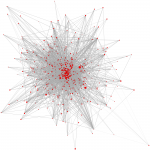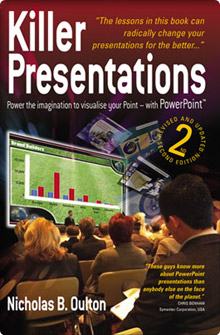Confident Presenters: Good or Bad?
Never underestimate mans’ ability to use fuzzy logic.
Just because good presenters are confident, does not imply that confidence makes good presenters. And yet most people, most presentation skills courses and, regrettably, most presentation coaches believe this to be true.
It is in fact a lie. Clearly a complete lack of confidence is a bad thing, but so too is complete confidence.
Darwin on presentations
“Ignorance more frequently begets confidence than does knowledge”
The confidence you derive from a well thought out, well prepared, well rehearsed presentation is seductive to audiences, but the confidence felt out of inflated self-belief is often perceived as arrogance.
I watched another presentation coach “help” a presenter. This consisted of a series of platitudes and sycophantic ramblings that had as much to do with massaging the coach’s ego as that of the presenter. While the exchange was enjoyed by both, I’m pretty confident it did nothing for the audience that had to sit through that presentation. Which, as far as I could tell, was just as bad as it was before the coaching–but now it would be presented with an air of arrogant self confidence instead of the (quite rightly) caution that it wasn’t really good enough.
Advice is cheap
But good advice is invaluable (as it is rare.)
For what its worth, my advice is that there is a time and place for boosting confidence and that time and place is after the hard work of producing a good presentation has been done.
- Know your audience
- Know your material
- Know how to engage your audience
- Know how to interact with your audience
- Practice the delivery
The confidence you get from this will see you through the event. Its ok to feel anxious, use it to fuel your performance. Anyone who says they don’t feel scared before presentations is either lying or dead.
Confidence is a double-edged sword, too little or too much can kill a performance. To quote Bertrand Russell,
“Those who feel certainty, are stupid.”
To misquote Bertrand Russell,
“Those who feel absolute confidence, are stupid”
What do you think? Ever seen a supremely confident presenter deliver a supremely bad presentation?




